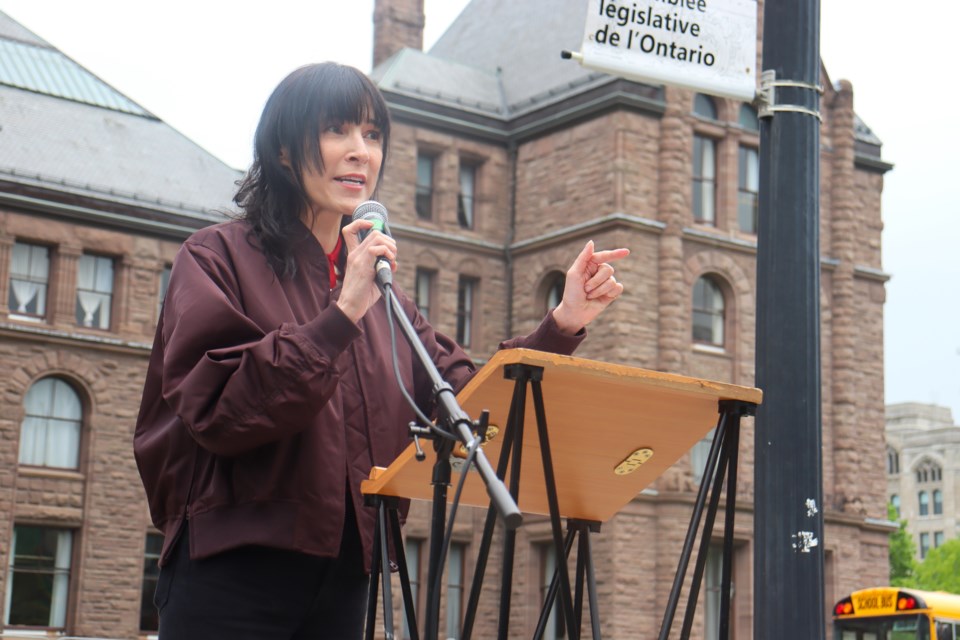This article was initially published by TorontoToday, a Village Media publication.
The Ontario government is poised to pass a bill that will give police additional powers to arrest people consuming an illegal substance in a public place, including in tents and homeless encampments.
Bill 6, known as the Safer Municipalities Act, was met with heavy opposition on the front lawn of Queen’s Park Thursday.

Led by the newly formed Encampment Justice Coalition, local grassroots organizations protested the province’s “alarming” legislation, which activists said will cause irreparable harm to the unhoused population in Toronto.
Under Bill 6, individuals suspected of using a hard substance in a public place — which includes tents that are used as dwellings — could face up to six months in jail and a fine of up to $10,000. It also aims to clear encampments by increasing penalties for “continuous trespassing.”
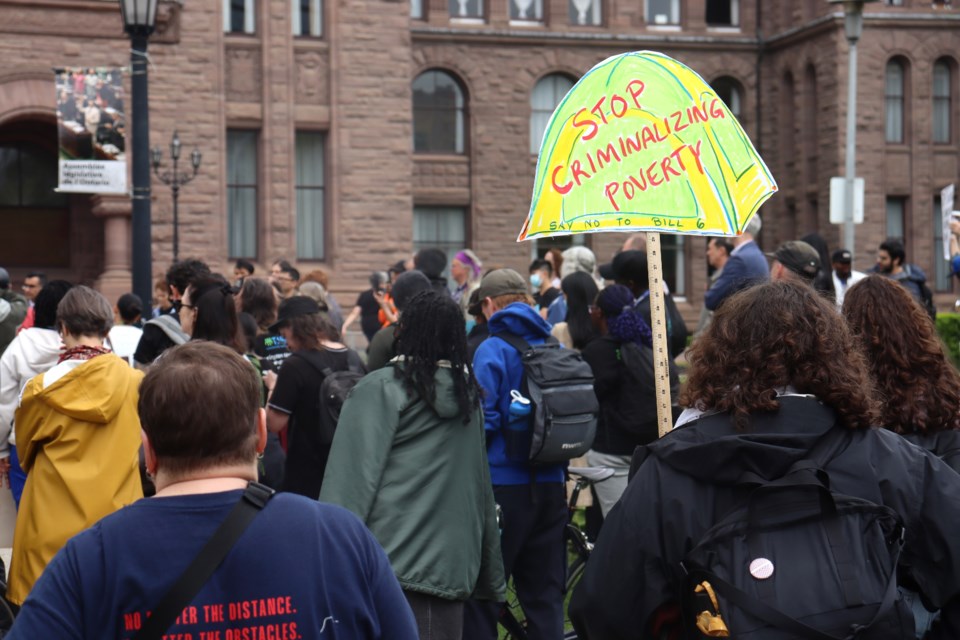
Inside the legislature, Premier Doug Ford’s Progressive Conservative government put forward a time allocation motion to speed ahead Bill 6’s passage and bypass public committee hearings.
Today’s rally was one of four such demonstrations across Ontario, with others planned for Ottawa, Kingston and Port Hope.
Diana Chan McNally, leader of the Encampment Justice Coalition, told TorontoToday that protesters demonstrating outside Queen’s Park today were denied entry into the legislature’s viewing gallery to watch MPPs deal with the bill.
“We were blocked and told that anyone who demonstrates outside is banned from entering for 24 hours,” she said. “If this is a new rule, nobody knows about it. NDP staff didn’t know.”
TorontoToday attempted to reach out to Speaker Donna Skelly’s office to ask whether such a security protocol was being enforced but did not hear back by publication time.
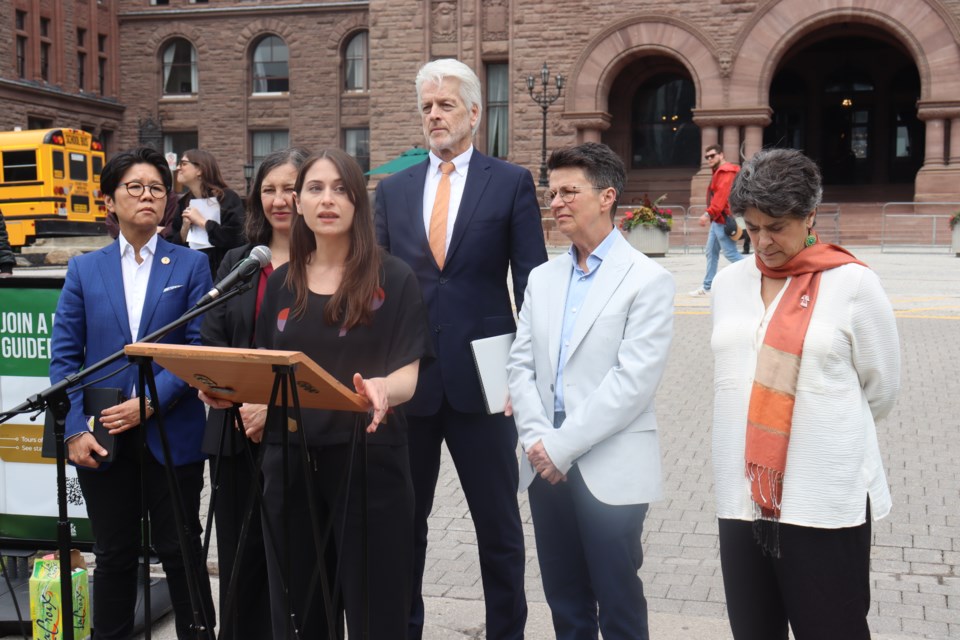
Critics argue the bill criminalizes homelessness
Speakers at the rally, which had about 100 attendees, stressed that people living in encampments need housing, not fines or further risk of arrest.
McNally argued that too many unhoused people in Ontario have been abandoned by the government — and that dinging them with fines and jail time “doesn’t work.”
“It creates less safety and costs all of us more money in the long run,” she said. “Homelessness is not a crime — this is egregious legislation. Under the watch of the Ford government, homelessness has become a crisis all across this province.”
“Affordable housing must be expanded, especially when we are contending with the very real threat of a recession, fuelled by unpredictable American tariffs,” she added.
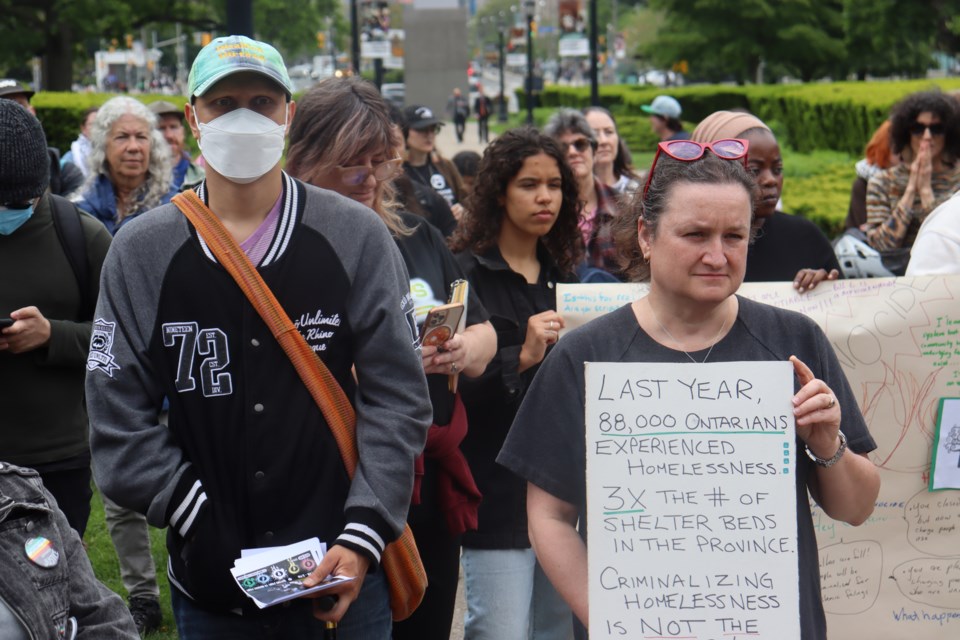
In the midst of her fiery comments, McNally claimed the Ford government has taken a “very American” approach to handling encampments.
“Bill 6 is Doug Ford deflecting responsibility for the housing and homelessness crisis directly onto the victims of this crisis,” she said. “This is an American policy. It has been enacted across America by people like Donald Trump — this is Trump policy that we are bringing into Ontario.”
Earlier this month, McNally and the Encampment Justice Coalition published an open letter to Ford, calling on his government to "prioritize care, not punishment,” and invest in other solutions to combat homelessness.
“With supervised consumption sites shut down, it leaves nowhere for homeless people to use drugs,” the letter reads.
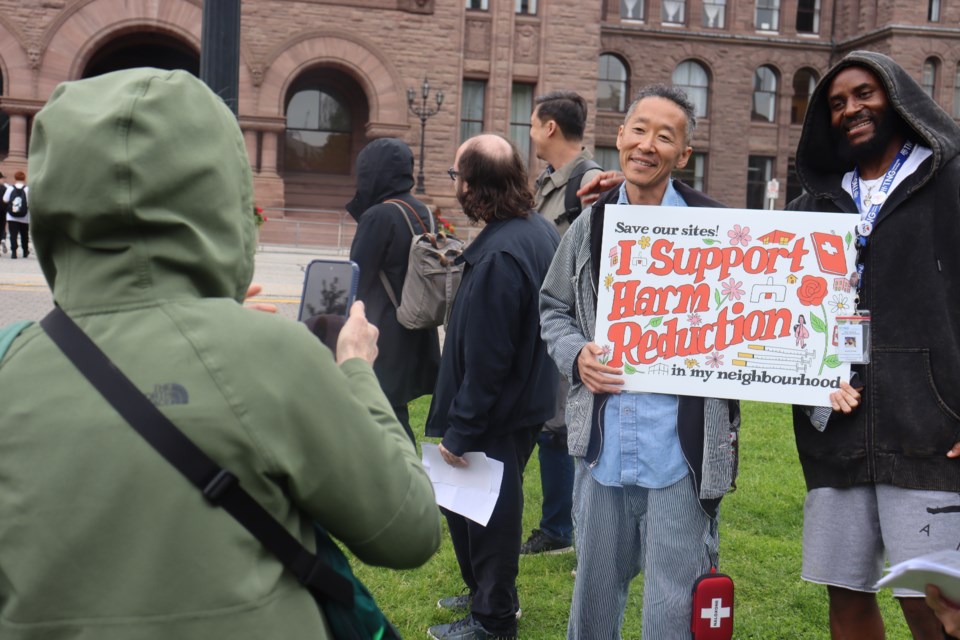
Meanwhile, Savhanna Wilson — a member of the Toronto Alliance to End Homelessness — called Bill 6 a blatant attack on marginalized communities, suggesting the bill is anything but “safe.”
“It criminalizes poverty and punishes people for trying to survive in public spaces when there is not enough adequate housing available,” she said. “This bill is being enacted in the name of ‘safety.’ But we’re here to ask the government: Safety for who?”
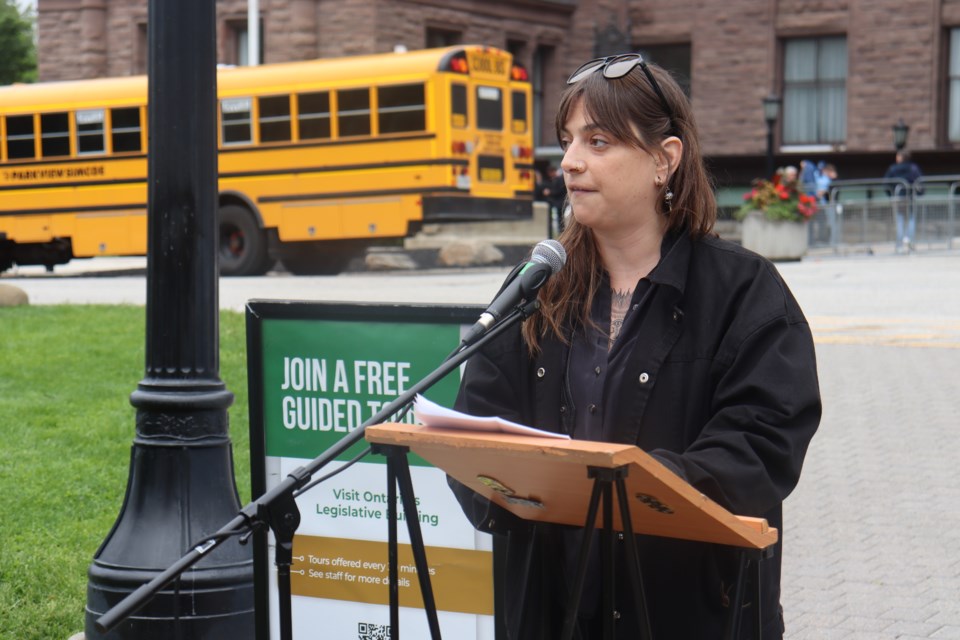
Former encampment residents ‘angry’ with Bill 6
Lyndon Kermack, a member of the Toronto Underhoused and Homeless Union who used to live in a local homeless encampment, said Bill 6 unfairly characterizes those living in tents and makeshift shelters as “the enemy.”
“Living in an encampment already feels like going to jail,” she said. “You have a bunch of security walking around constantly and can’t leave your tent unattended because city workers may steal everything you own and throw it away.”
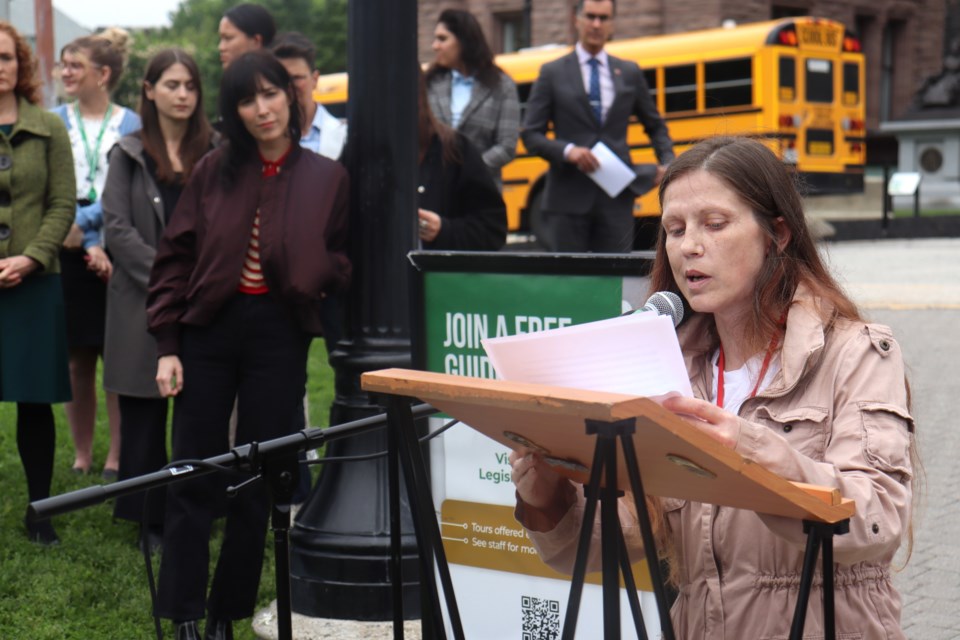
Having previously used drugs to self-medicate and manage the physical pain she was in, Kermack said an arrest by police would have “only made me want to use more.”
“How would that fix anything? How would that have helped me get out of the situation that I was in? What I needed most was access to housing and genuine support and compassion. I needed the city to be on my side — not see me as a threat to homeowners nearby.”
Kevin Wilson, a member of the Toronto Harm Reduction Advocacy Collective, also knew what it was like to live on the streets — addicted to drugs and feeling hopeless.

Though his current housing situation “is not perfect,” the local advocate said his living arrangements are moving in the right direction thanks to the treatment he received from a supervised consumption site that has since closed.
“Bill 6 would give Doug Ford’s government [the power] to lock people like me up and force me into treatment against my will for a problem I may not even have,” he said. “It’s almost as if Ford thinks we are not capable of thinking for ourselves.”
“But as long as I have breath in my body, Doug Ford and any member of his caucus will never know a moment’s peace,” he pledged.

